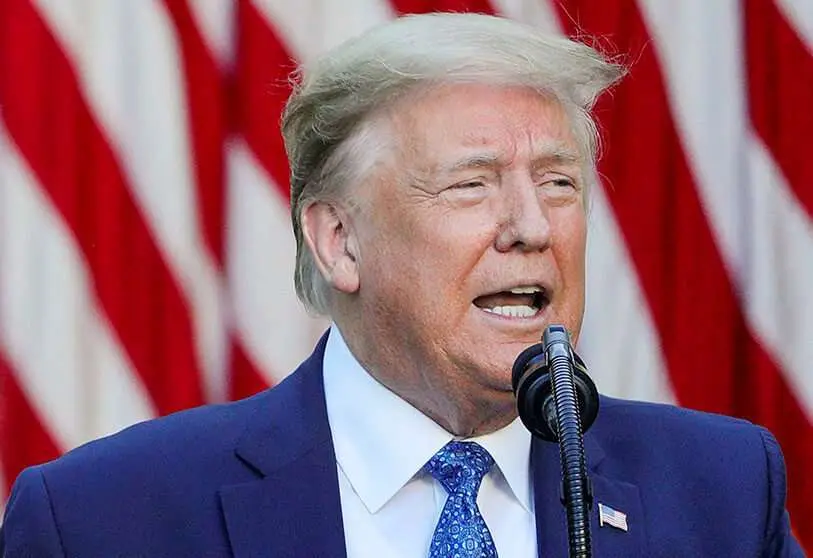Trump doesn't like the International Criminal Court either

With President Donald Trump, no one can be fooled. The coarseness of his manners shows with brazenness and insolence his intentions to boycott or openly confront those international organizations that do not conform to his interests. The latest to experience this are the officials of the International Criminal Court (ICC) who are investigating alleged human rights violations committed by US troops and security agents in Afghanistan.
In fact, Trump is executing with more brutality what his predecessors in the White House have been doing since the very creation of the court in 1998, and especially since it became fully operational in 2002 after being ratified by the first 60 member countries. It was President Bill Clinton who, just a day before leaving power, signed the ratification of the ICC on behalf of the United States, and it was his successor, George W. Bush, who annulled that operation a few months after sitting in the Oval Office of the White House. Neither did the country's first mulatto president, Barack H. Obama, show the least empathy towards a tribunal, whose enthronement was long pursued as one of humanity's greatest achievements: that there should be no impunity for those who committed the most serious crimes against international law, from attacks on human dignity to genocide.
The investigation of the American soldiers and officials in Afghanistan is a task for the prosecutor of the ICC, the Gambian Fatou Bensouda, who is pursuing the alleged crimes of rape and torture carried out not only on Afghan territory but also in secret prisons in Eastern Europe, with the alleged cooperation of the countries that host these secret prisons, which are members of both the European Union and NATO.
The executive order now issued by Trump, which imposes both economic sanctions and the refusal of entry visas to the United States for ICC officials, is justified on the grounds that their actions "threaten to undermine our national sovereignty". In fact, the U.S. administration considered from the outset that sooner rather than later the tribunal would end up examining the overseas actions of its troops. This is proven by the fact that on the eve of the ICC's entry into operation in 2002, the US Congress passed the US Service Personnel Protection Act, which shielded both military and civilians from being tried by courts other than the US ones.
Although the global environment highlights Trump's stridency, the ICC is also not liked by Russia, China, India or Israel, great powers that have also refrained from ratifying, and therefore recognizing the jurisdiction of this court. Russia is particularly keen that its actions in the annexation of Crimea in 2014 and the war that has since been waged in eastern Ukraine should not be investigated; China also does not want anyone to pry into what is happening to its ethnic minorities in the west and south of the country; Russia and China have vetoed in unison the UN Security Council's attempts to activate the ICC to investigate war crimes committed in Syria; India's actions in the deprived and definitively annexed Kashmir would not have the cooperation of New Delhi either, and finally Israel abhors the fact that the ICC will open an investigation into possible crimes by its army against Palestinian citizens at the end of 2019.
Many people question the usefulness of the ICC if it cannot judge the most powerful. Many Africans think that it is a tribunal imposed exclusively on them. The first person under investigation was precisely the president of Sudan, Omar Al-Bashir, who while in power literally mocked the international warrant for his arrest. The second was Libyan leader Muammar Al-Qadhafi, whose murder by lynching in 2011 brought the case to a close. This was followed by the first sentence, a 30-year sentence for Thomas Lubange, leader of the Forces Patriotiques de Libération du Congo, for the recruitment and use of child soldiers. In 2016, 18 years' imprisonment were imposed on Congolese Jean-Pierre Bemba Gombo for murder, rape and pillage committed in the Central African Republic, and also the nine years he was given to jihadist Abu Turab for the destruction of nine mausoleums and a mosque, a world heritage site, in Timbuktu. An African litany that led to the death of Burundian President Pierre Nkurunziza, now in the midst of a coronavirus pandemic, becoming the first state to leave the ICC in 2017.

